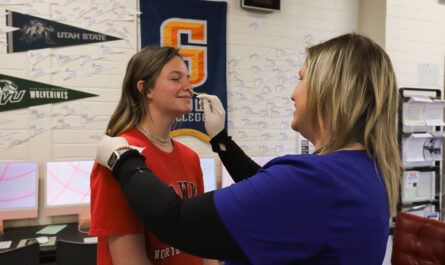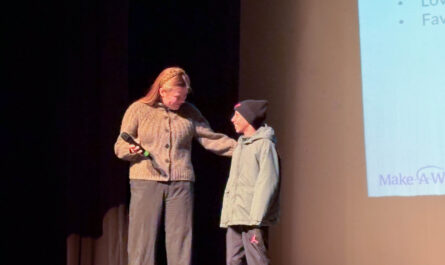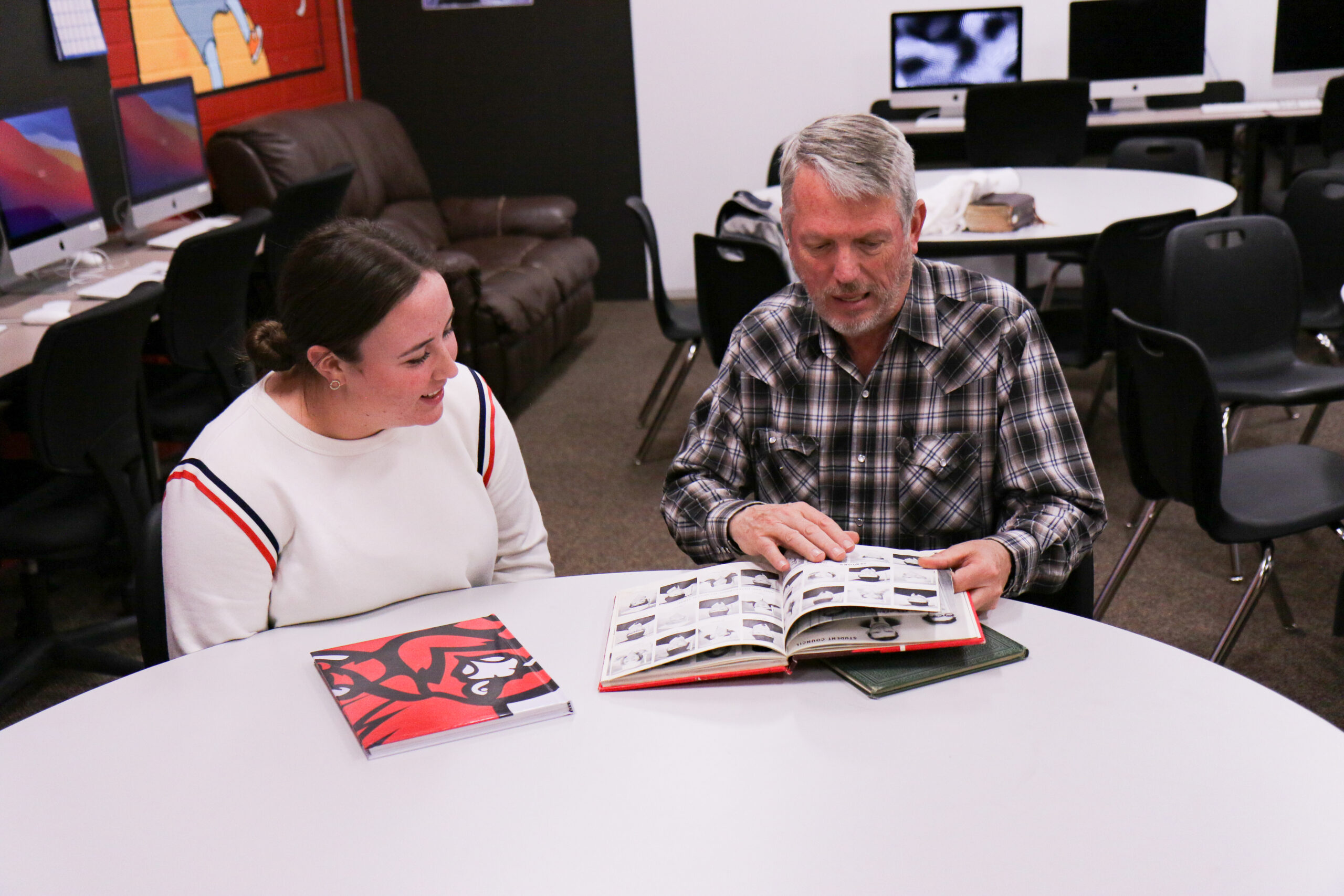At the Region Speech and Debate tournament, freshman Aubrie Stiglich and Julian Stavros represented NS high school. Stiglich took third in the Congressional debate event and Starvos took fifth in the Lincoln Douglas event.
“I was really proud of them. I thought they did well,” said Speech and Debate teacher Alex Bailey.
This year, due to COVID-19 restrictions, the competition took place online. For the speech events, the students submitted a video of their speech. The debate events, on the other hand, were held live through a platform similar to Zoom. The awards ceremony was then held via Zoom.
“It wasn’t super stressful,” said freshman Aubrie Stiglich. “I mean it was stressful, obviously, because I was competing, but the people there were friendly and nice and made it easier. They really helped out a lot and it was good.”
Stiglich competed in a debate category called Congressional. For this category, the participants prepare speeches based on different topics, then state whether they agree or disagree and give their speech.
“For this kind of debate, I definitely have to do a lot more research,” Stiglich said. “I have to write a speech and try to persuade the other people that I’m talking to to agree with me, so I have to figure out a lot about the topic.”
The bills or resolutions the competitors debate on can range from prescribing opioids to animal abuse.
“For Region, one of the topics I did was a bill to train police officers to handle mental health crises better, and I did a resolution to lower the president’s pardon power,” Stiglich said. “It’s been fun. Definitely a big learning experience because I haven’t ever done it before, but I think I’m starting to get better and I really enjoy doing it.”
For Julian Stavros, Lincoln-Douglas is a little bit different from Stiglich’s category.
“It’s a really formal type of debate,” said freshman Julian Stavros. “It’s one-on-one, so I’m only going up against another person. You prepare speeches beforehand, and then you give speeches, and then there’s a rebuttal after the speeches.”
For Lincoln Douglas, there is a negative and affirmative side to the argument. Each person shares their side and then they debate each other.
“Lincoln Douglas is more difficult,” Bailey said. “Just because it is a one-on-one event and it requires more out of the individual in terms of really defending their argument.”
Similar to Congressional, Lincoln Douglas contains different topics that the students debate upon.
“One of my favorite topics that we debated on was [whether] the United States ought to ban lethal autonomous weapons, which basically means weapons with AI,” Stavros said.
Despite being freshmen and having no prior experience with Speech and Debate, both Stiglich and Stavros have excelled and done well at their competitions. Both of them agree that they will be continuing in Speech and Debate and have thoroughly enjoyed their experiences.
“I like competing,” Stiglich said. “It’s really fun to write the essays and go and tell them to the other people. I know I’m not doing much, but I feel like I’m making a difference, I guess. Even though it’s just a competition.”
According to Bailey, Speech and Debate helps to pull kids out of their comfort zones and help them see things in a different light. They are able to educate themselves on topics and learn from their mistakes. In the end, Bailey hopes that by participating in the program, students can develop a mindset centered on growth.
“You have to go into it knowing, ‘okay I maybe don’t know everything, I’m not always going to be perfect at everything, but I can always improve in some way,’” Bailey said. “[It’s] being willing to take risks, whether that’s speaking in front of someone for the first time. Realizing there’s that chance that you might fail or maybe not do as well as you hoped and just learning from that instead of getting discouraged.”




